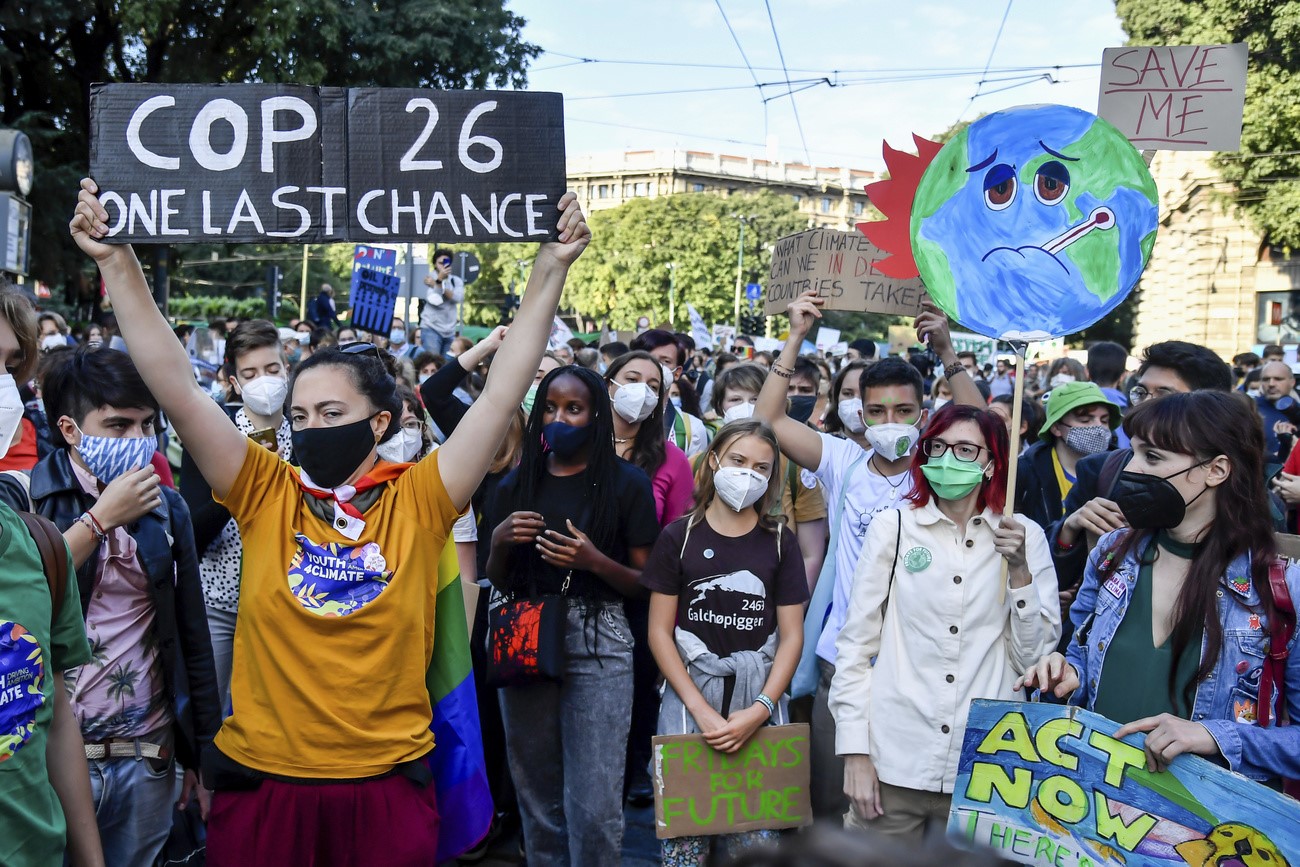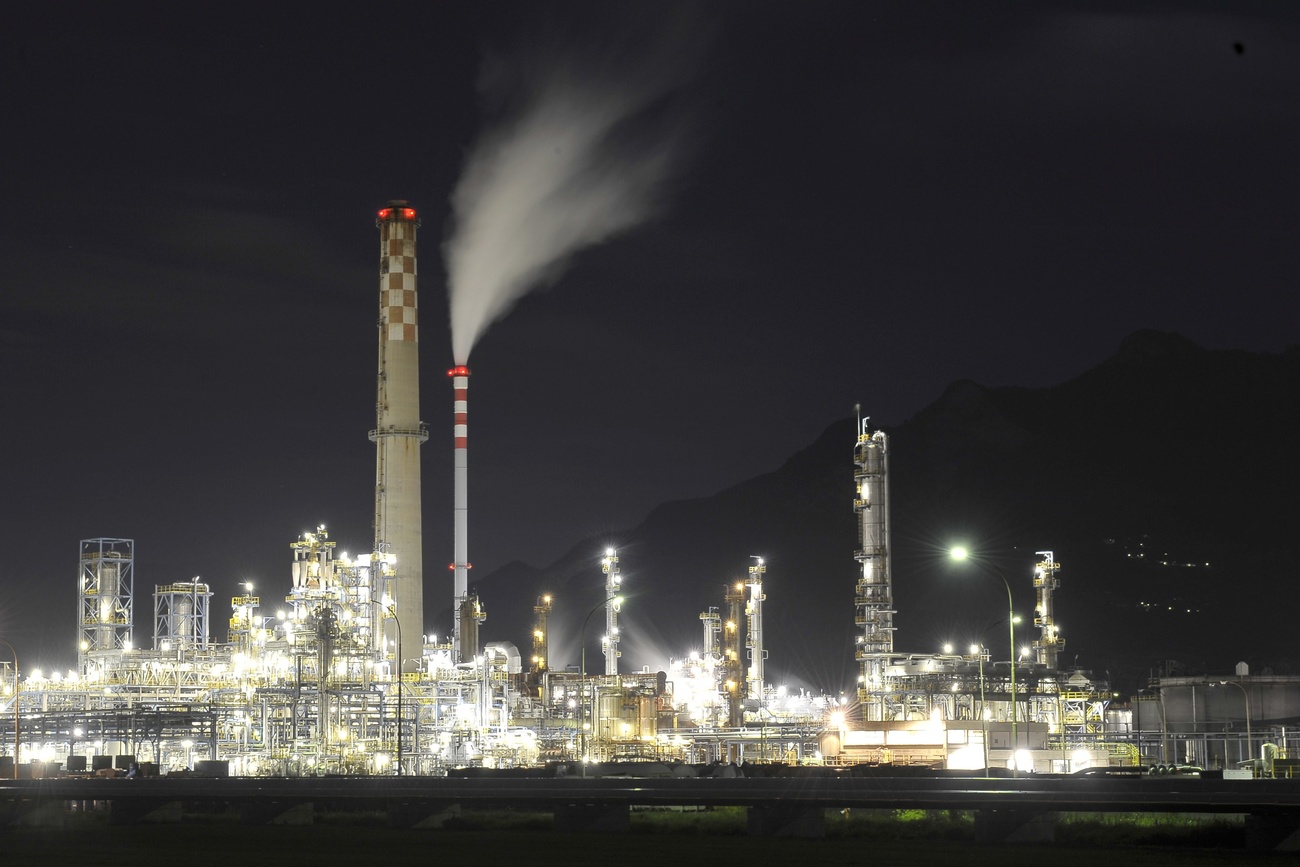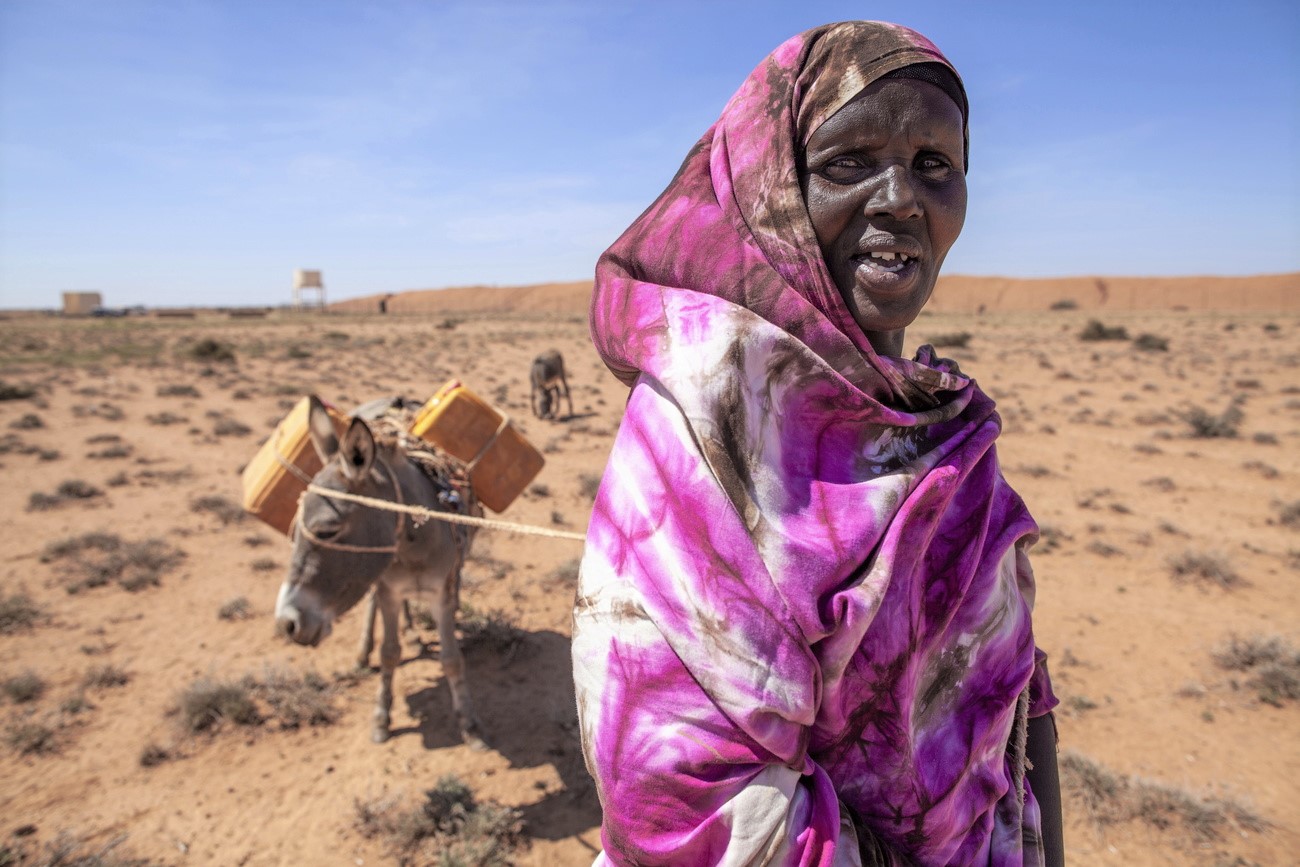
Is COP26 the last hope for limiting global warming?

The United Nations Climate Conference (COP26) is seen by many as the last chance to avert the most catastrophic and irreversible consequences of rising temperatures. Here is everything you need to know about the event, which takes place in Glasgow, Scotland, from October 31 to November 12.
The international conference represents “a turning point for humanity”, according to British Prime Minister Boris Johnson. Strong words that reflect the importance of an event that the UN did not want to postpone yet again because of the pandemic, despite the appeal of many non-governmental organisations (NGOs), not all of whom could attend owing to the lack of vaccines in poor countries.
Switzerland has reaffirmed its plans for climate action, but collective decisions will be the key to whether the COP26 conferenceExternal link succeeds or fails.

More
How climate change affects Switzerland
What is the COP?
It is the Conference of the Parties (COP) to the United Nations Framework Convention on Climate Change. It is an annual event where government officials discuss and negotiate solutions to tackle global warming. The 26th session is chaired by the United Kingdom in partnership with Italy.
Who else is participating?
Representatives from nearly 200 countries, including around 100 heads of state and government. Thousands of negotiators, climate experts, business leaders, civil society groups, representatives of NGOs and journalists from around the world will also attend the summit.
Why is this year’s summit so important?
Because six years have passed since the adoption of the international treaty on climate change, the so-called Paris Agreement, and the commitments made so far are insufficient to limit global warming to 1.5° Celsius., Beyond this threshold climate change could have a long-lasting and irreversible impact on human and natural systems. Recent heatwaves, wildfires, floods and other natural disasters highlight the need for urgent and global climate action.

More
Swiss CO2 law defeated at the ballot box
This year’s COP in Glasgow is also the first since the United States rejoined the Paris Agreement.
What is being discussed?
“Coal, cars, cash and trees,” as Johnson put it. Climate finance will be one of the main topics discussed in Glasgow. This refers to the aid that industrialised countries have pledged to the countries most affected by global warming.
We are still a long way from the $100 billion (CHF93 billion) a year promised in 2009 to finance projects aimed at reducing carbon emissions and adapting to climate change in developing countries.

More
Climate finance: what about international solidarity?
The delegates in Scotland will also discuss carbon allowances and offsets, the promotion of electric vehicles, and solutions to end deforestation and coal mining.
What are Switzerland’s priorities?
Switzerland is committed to uniform, strong and binding rules for implementing the Paris Agreement, the government said in a press release. Switzerland wants to avoid the double counting of emission reductions. This refers to situations where two countries claim the same reductions, with one country reducing its own emissions and another country financing the reduction through offset schemes. Carbon offset schemes allow countries to invest in environmental projects around the world to balance out their own carbon footprint. Switzerland wants to prevent such projects – such as the building of a solar power plant – from having a negative impact on the environment or human rights.
At the end of 2020, Switzerland and Peru were the first countries in the world to strike a carbon offsetting deal under the Paris Agreement.

More
Swiss-Peruvian climate deal pioneers international cooperation
Will the negotiations be successful?
Not necessarily. As in 2019, the climate conference risks concluding without making substantial progress, despite decades of warnings from scientists and calls for immediate action from citizens at climate protests worldwide. Some of the biggest emitters, including China and India, have missed a July 31 deadline to submit updated climate pledges to the UN. All parties to the Paris Agreement were requested to submit such pledges ahead of COP26.
“Without political and financial commitments from industrialised nations”, there’s a high risk of the COP26 failing, said UN Secretary-General António Guterres.

In compliance with the JTI standards
More: SWI swissinfo.ch certified by the Journalism Trust Initiative




























Join the conversation!